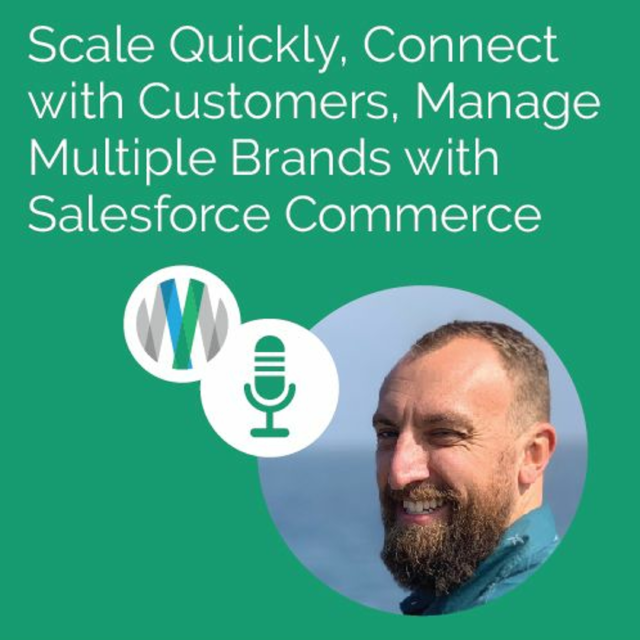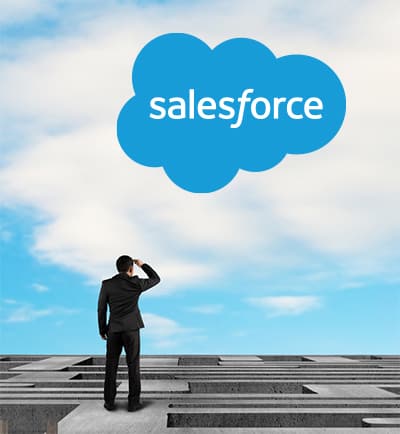Mike Boyle:
Let’s talk a little bit about those components. What’s included with Commerce Cloud?
Aaron Hutten:
If you really wanted to go bare bones, it does have an end-to-end consumer experience storefront already built. But, that’s not uncommon. If we look at the marketplace, like NetSuite, Hybris, Magento, or Shopify, all of them have a pre-built storefront, and level of customization comes after there. But, out of the box, you have native search engine, native promotions engine, A/B testing engines, all of these things that some of our competitors, or some of the competitors in this landscape you would have to pay third parties for, are all packaged into this Commerce Cloud experience, and can be managed by non-technical people. It has PIN capabilities, DAn capabilities, catalog management, and as I alluded to, promotions, search, content CMS components as well.
Mike Boyle:
Everywhere you turn, Aaron, I’m sure you see it as well, you see articles, you see blogs, people are talking about customer experience. Talk a little bit about how Commerce Cloud unifies the customer experience.
Aaron Hutten:
Yeah, and one of the really exciting things was, when it was Demandware, and we were all working on, it still was technically considered a startup. As we’ve seen in recent years, startups come and go. I could have bet my career on a number of startups, and be working on something else at this point. Luckily, they were acquired by Salesforce, and Salesforce has largely grown through acquisition. What that means is, they’ve acquired numerous independent technology stacks that they said were beneficial. Exact Target became Marketing Cloud, MuleSoft, Tableau. They have an order management solution, and things like that. In the beginning days, there was ways for those to communicate with each other, and those could have been automated jobs, or APIs, and things like that. Nowadays, Salesforce has really invested a lot of money in ensuring there’s a cohesive and connected experience.
Regardless of the channel, and regardless of where I’m at in the world, if I’m a consumer, and I’m interfacing with the brand, I have one cohesive experience. That could be an integration with Salesforce Core, CRM. That could be customer service calling in, using service cloud and accessing the OMS. That could be the email campaigns that are fully integrated into Commerce Cloud. I transact, or I don’t transact. I get part of a campaign, I’m put into a customer segment, and things like that. Salesforce, in recent years, in the last few years, has also integrated loyalty, and their own payment solutions, directly into Commerce Cloud. You can imagine, whereas it used to be a bunch of different disjointed systems, all of these communicating with each other, so you do have a single source of truth on what is my customer, and what are they doing, regardless of where they came to us from.
Mike Boyle:
At the end of the day, why are brands using Commerce Cloud to be more agile?
Aaron Hutten:
Largely, it’s time to market. It’s scalability. It’s that, it doesn’t require technical expertise. I will pause on that. It requires extensive technical expertise to get up and running, but once that’s done, it can be managed independently by a business unit. There is a market shortage, globally, on senior developers and architects. It’s much easier for companies to deal with, “I can have a marketing person, or a web content person.”
Really, it’s that scalability. When we look at Demandware, which is now Salesforce Commerce Cloud, the big clients that you think of, like Coach, Crocs, L’Oreal, Adidas, most of these are running over a billion dollars through this platform seamlessly, without much technology interface, and anything like that. I think it really has this track record on why it should be used, and how easy and agile it can be.
Mike Boyle:
He is Ad Vic’s senior vice president of commerce, Aaron Hutten. I’m Mike Boyle, from Ad Victoriam Solutions. You’re listening to Ad Victoriam Salesforce Simplified podcast. Aaron, let’s talk a little bit about retailers. Why are retailers, in particular, using Commerce Cloud to be more innovative?
Aaron Hutten:
Originally, the core demographic, the core verticals that Demandware was focused on when they came to market, and how they got to such a strong foothold, was that they concentrated on a few key verticals, proved the model, and blew it up. 80% of the footwear industry, and 80% of the cosmetics industry are all this platform. Demandware took a risk, they broke into a vertical, they proved it, they made lots of money for their retailers, and they said, “Why don’t we go to the other footwear company and say, “we can do this.” They proved the model, and blew it up. They did that for cosmetics. They did that for footwear, and more traditional outdoor apparel, and things like that. They also say, I think it’s 60% of the entire outdoor apparel industry is on this. Once they had that proven model, and it was reliable, and it was consistent, they could come in, and it wasn’t even like it was a sale.
They said, “Hey, look what your competitors are doing, and they’re making so much more money. Do you want to make money, or don’t you?” I often say that, innovation and inevitability are not the same thing. If a customer doesn’t want to do what we’re proposing, or what Salesforce is proposing, eventually, they’re going to do it, or their company isn’t going to be around much longer, because all of the other competitors are doing it. With that success, with that stronghold in retail in the last, I’d say five, six years, we started breaking out into new verticals, verticals that traditional retail hadn’t ever thought about.
I’ve been part of the team that brought augmented reality shopping to this platform, social selling to this platform, B2B selling to this platform, and pharma. All of these brand new verticals. Again, they had a tried and true story that, this is what worked for retail, we already have it. Again, running a billion through, why don’t you give a chance? It’s just a commerce layer, and we know that you need to transact.
Mike Boyle:
Talk about some of the tools that are available within Commerce Cloud, to help retailers connect to the right products.
Aaron Hutten:
Commerce Cloud has numerous capabilities, and features, and things like that. It’s not uncommon for retailers to introduce guided selling. Essentially, what that is, I come to a consumer experience, a website let’s say, and I say, “I don’t know what I want. I don’t know what kind of running shoe I need. I’m going to click a few buttons, and it’s going to pop one out and say, “this is what it’s recommended.” That’s all just extending the native features of Commerce Cloud. It’s things like guided selling. Again, as I alluded to earlier, it has a very robust search engine, a promotions engine, it has dynamic customer segmentation. It could be, I spend more than $200, I see this. Or, if I spend five hours on this site, I see this.
All of this can be done dynamically, and once it’s set up, it’s programmatically running. Those dynamic customer groups can seamlessly integrate to the CRM system, to the marketing cloud system, so we can tie campaigns to them. We can send reminders to them. It supports customer lists. It’s a pretty robust feature set, if you’re a retailer.
Mike Boyle:
What about its ability to drive personalized experiences on websites?
Aaron Hutten:
I think a lot of that does happen, especially recently. We see a full integration into social, and that could be social selling, or social integration. Obviously, we have an analytics engine that usually sits on it, the common in the industry is Google. We have what are called passive event listeners. Mike, if you and I were sitting around, talking at happy hour, or something like that, and we mentioned how the baby needs diapers. The reason your phone knows that is because there’s a passive event listener, but websites have those as well. Those events are going on.
The benefit of that is, you’ll start to see more and more manicured experiences based on what you actually want. If I click on this, I know that this is going to be a correlated product. In all the background, there’s attributes on the product model, or the category model, and things like that, saying, “Associate this with this, and then, render that to this customer experience.”
There’s also, dynamic customers are content segments. If I show up in California, I see this homepage. If I show up in New York, I see this one. Tejas, I see this one, and things like that. All of that can be managed and controlled, set to timers, and segmented. It does have a pretty robust feature set, to create a truly unique experience based on who I am and where I’m coming from.
Mike Boyle:
I imagine there might be some folks listening to us now, Aaron, who wonder about Commerce Cloud’s ability to support multi-brand and multi-site implementations. Is that possible?
Aaron Hutten:
Yeah. It’s not only possible, but it’s actually considered the status quo, or defacto. It is pretty normal. Most of the customers that we interact with, most of the customers that sit on this platform, are owned by private equity firms, or retail holding companies. When we think of the big ones, like VF Corporation, 30, 40 unique brands, global giant brands like Vans, North Face, Dickies, and things like that, all of them are sharing one common code base. You can imagine they exist globally, in every single locale and currency that you can think of. L’Oreal, 34 unique brands, 200 plus sites. Wolverine Worldwide, 16 unique brands, again, in over 200 countries. It’s pretty normal for the standard Commerce Cloud customer to be multi-brand, multi-storefront, multi-language, multi-currency.
Mike Boyle:
Last question I have for you, Aaron, has to deal with us here Ad Vic, and the implementations that we’ve done of Commerce Cloud, for our clients. When we’ve done these, what seems to be some of the things that the clients like most about their decision to go with Commerce Cloud? Any, “Wow” factors?
Aaron Hutten:
Again, and I’ve said it a few times, it’s been a central theme. The reason we’ve seen so many of these SaaS-based solutions, these cloud-based solutions pop up and survive, and become strongholds, is that they don’t have to wait on a traditional IT department. If marketing says, “I want to change out that header right now,” it’s a 10 second job, and it’s owned by the business. It’s not owned by a developer who’s like, “I don’t know the difference between header A and header B.”
Additionally, the scalability and time to market. Like I said, most of these companies have brand X, brand Y, and they want to just cut and copy, and manage them in one single interface, and they’re able to do that again. Again, we’ve seen case studies from Salesforce on 20 30, 40 different unique storefronts, launched in less than 12 months, all because it’s sitting on this cloud-based solution, and it’s a rinse and repeat model.
That really gets them excited. I’d say the other component is, there is a marketplace. In addition to the native features I’ve mentioned, like content slots, or dynamic customer segmentation, or promotions, all of those used to be third parties. There’s also a pretty robust marketplace. If they’re like, “I want to add on ratings reviews, or affiliate marketing, or a more robust CMS,” there’s a certified link marketplace that connects modules coupled directly into Commerce Cloud, and they’re pretty plug and play. It creates a pretty cool feature set, or Lego version of your own unique site.
Mike Boyle:
Aaron Hutten, thank you so much for giving us this outstanding overview of Salesforce Commerce Cloud. I know there are upgrades from time to time, and Salesforce is always tinkering with things. Would you come back and give us an update on Commerce Cloud in the future?
Aaron Hutten:
That’d be great. I appreciate your time today. Thank you.
Mike Boyle:
To the audience. If you’d like to learn a little bit more about Salesforce Commerce Cloud, just visit advic.com, A D V I C.com. As I always do, I will put some helpful links about Commerce Cloud in this episode’s notes section. Lastly, if you like what you’ve heard today, be sure to tell your friends and colleagues all about the podcast, which is available on all the podcast platforms. Apple, Google, and Spotify, you name it, we’re there. I’m Mike Boyle from Ad Victoriam Solutions, thank you for joining us for our latest edition of Salesforce Simplified. As always, our next episode is just around the corner.
Speaker 1:
We’re glad you stopped by. You’ve been listening to Salesforce Simplified, the podcast from Ad Victoriam Solutions.


